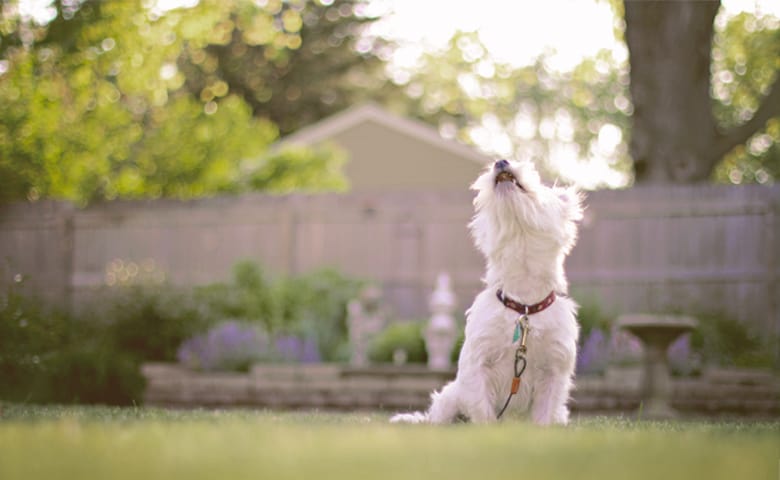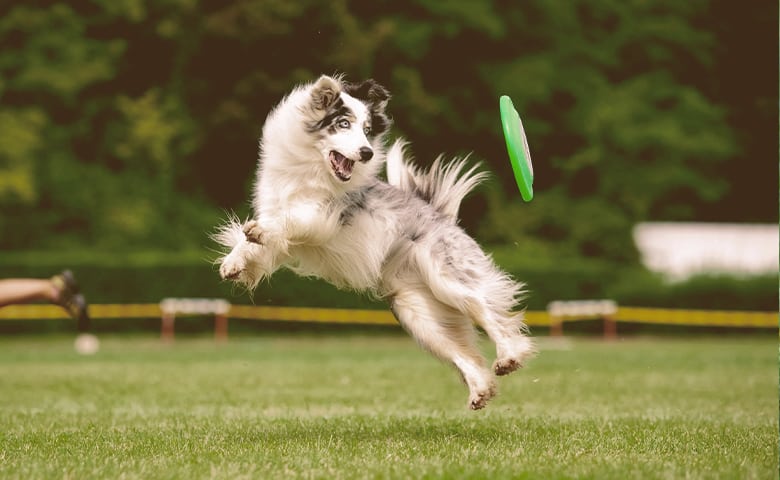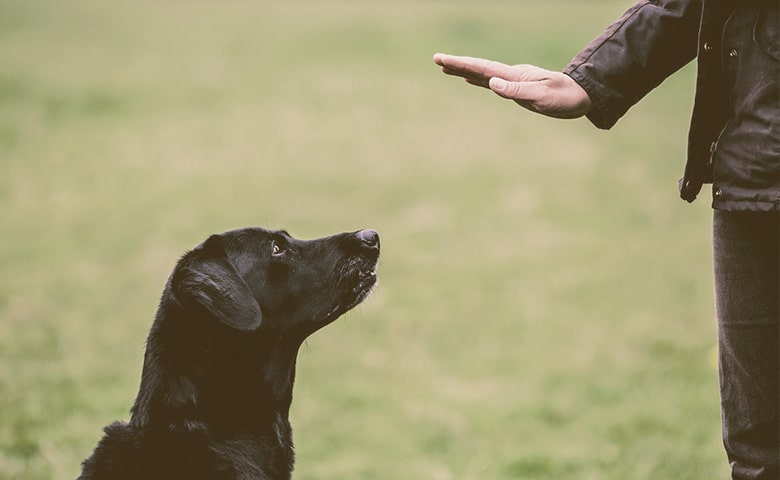
How to Stop a Dog From Barking Too Much: The Ultimate Guide
Alex Vicente • Updated on August 22, 2023
- This review contains affiliate links. Read more here.
- Not a substitute for professional veterinary help.
You can count on your dog to bark, whether it’s in reaction to stress, exhilaration, territoriality, attention, or boredom.
If they’re constantly barking, your main priority should be to figure out what’s the trigger and address it consistently.
When dogs bark, they feel rewarded in some way, they wouldn’t do it otherwise.
You need to determine what they gain from barking and suppress that.
Enabling your dog to continue the barking behavior is disruptive.
Here are six ways to stop your dog’s barking.
Table of Contents
Ignore the Behavior

If you realize your dog is barking to get your attention, ignore them as long as they need to quiet down.
Stop interacting with them in any way. Don’t talk, don’t touch, don’t even look at them because your attention will feel like a reward for being loud. Give them a treat if they settle down even for a moment.
To succeed at this process, you must be patient.
If they bark for an hour before you become annoyed and yell at them to stop, the next time they can bark for two hours. They learn that you will pay attention to them if they bark long enough.
For instance, if you leave your dog in another room, close the door and ignore them. Return to the room, praise them and give them a treat once they have stopped barking.
Increase the amount of time they must remain quiet before being rewarded, as they learn that being quiet earns them a treat.
Remember to start small by rewarding them for being quiet for a few seconds, then work your way up to longer periods of silence.
Make a Gradual Desensitization

Observe what your dog is barking at. Is it normal for them to bark when someone knocks on the door? Or perhaps to other dogs or children passing by? In these cases, you must positively desensitize your dog to the stimulus.
Sit with your dog while you wait. As the trigger approaches, reward your dog with a treat and speak to them in soothing tones. Reward them once more as they get closer. When your dog starts barking, stop giving him treats.
You will need to repeat this several times for the dog to understand. The dog will eventually realize that treats are preferable to barking. In essence, they will be trained.
Inhibit the Barking

When your dog begins to bark, teach them to do something that is incompatible with barking.
Educate your dog to respond to triggers by doing something that inhibits them from barking, such as lying down on their bed.
When they consistently go to their bed to earn a treat, take it up a notch by opening the door while they’re in it. If they stand up, shut the door immediately. Repeat the process until they stay in bed once the door opens.
Then, to make it tougher, get someone to ring the doorbell while your dog is sleeping. Reward them if they stay put.
Exercise Your Dog

Exercise is essential in the life of every dog, especially if they exhibit behaviors such as compulsive barking. Many dogs bark to fill the time when they are bored. They bark when you come home, when you leave, inside or outside the house.
It might be a good idea to tire them out before you leave in the morning and after you return home at night. A short walk or throwing the ball for a few minutes are always good options.
Make sure your dog gets enough physical and mental exercise on a daily basis. A tired dog is less likely to bark out of boredom or frustration. Depending on the breed, age, and health, your dog may require numerous walks as well as a decent game of chasing the ball or playing with toys.
Relieve the Stress

You can create a “safe place” for your dog both inside and outside your home. A simple crate with a bed, toys, food, and water can provide the desired sense of security and comfort. Leave the crate open and close a door, or use a child safety gate to widen the area and prevent them from feeling caged. As an additional measure, white noise or music can be used as a calming device.
There is also a vast array of products on the market that can assist dogs who become stressed when left alone.
Stress-relieving collars often use pheromone technology or herbal mixtures that aid in anxiety relief. The pheromones are similar to those released by nursing dogs to comfort their puppies, while herbal blends mimic pheromones.
Anxiety wraps or jackets can also be useful in managing stressed or anxious dogs. These products apply gentle and consistent pressure for a calming effect. Some of these even use acupressure principles to reduce stress. Several companies now sell them, and they can be found both online and in pet stores.
Look For a Certified Professional Dog Trainer

With a little patience and time, you should be able to train your dog to eliminate most barking behaviors. However, if all else fails, there are always professionals to help you out.
There is a wide range of specialists such as dog trainers, dog whisperers, dog psychologists, canine massage therapists, who can assist you in determining the best solutions for your dog.
It can consist of intensive training for a short period of time (usually a couple of weeks) or regular training sessions. In either case, they will certainly provide you with follow-up instructions and training techniques to help you succeed at home.
The Bottom-Line

All of the techniques listed above have been proven to work when it comes to reducing or eliminating unwanted barking behavior in your pet. However, which one you choose will be determined by your dog’s attitude, the cause of the barking, and what feels right given your time and budget.
We hope you strive in your attempts to get your dog to stop barking because we know how important it is for both of you.


